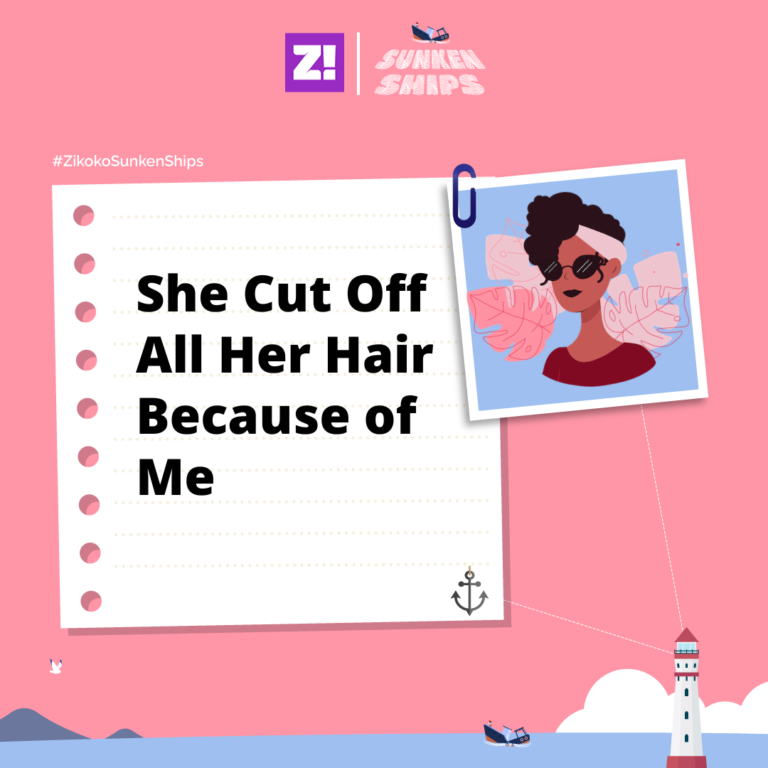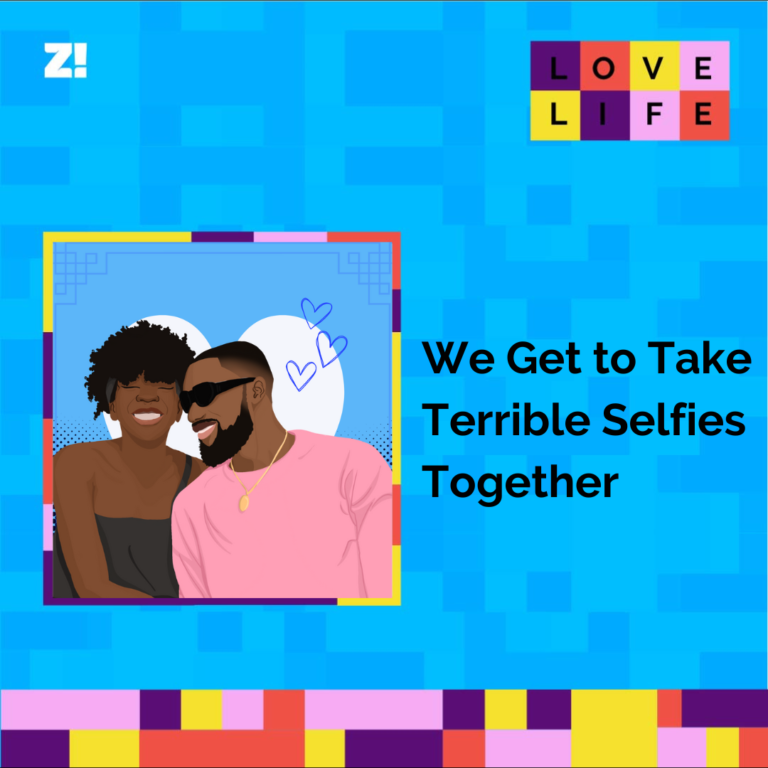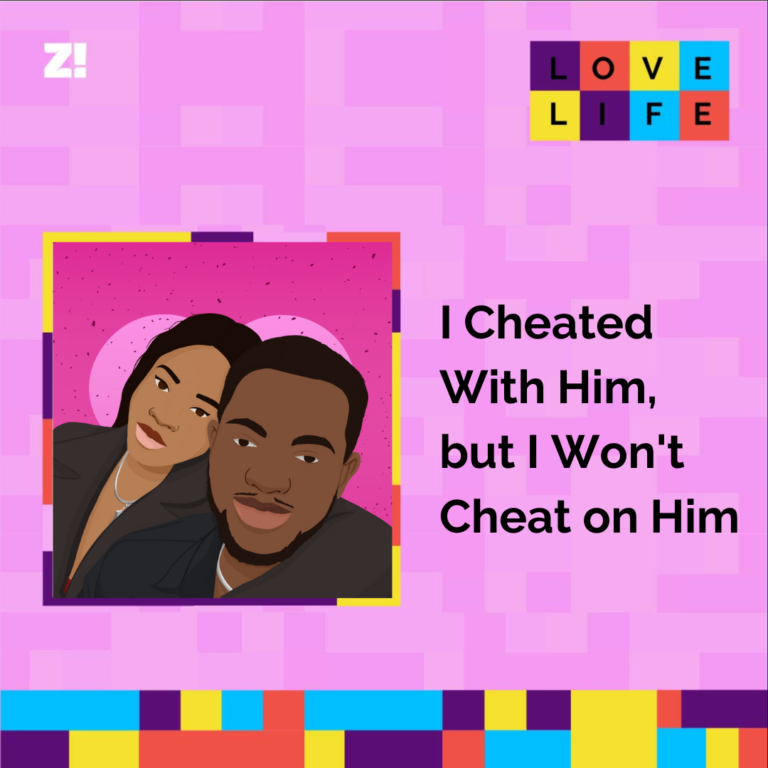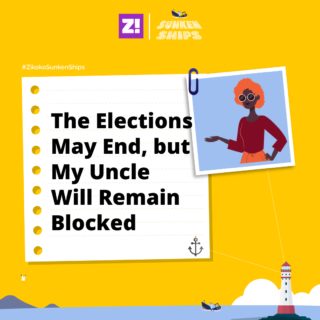What do you do when you do not know what you want to be? For some people, they take time out to figure out what it is. For Nana, it was to go to school and get degrees. Nana Aisha Salaudeen is a 26-year-old woman with four degrees in finance who works as a multimedia journalist, telling stories. She talks about going from wanting to be an automobile aeronautics engineer, to studying finance, to becoming a journalist.
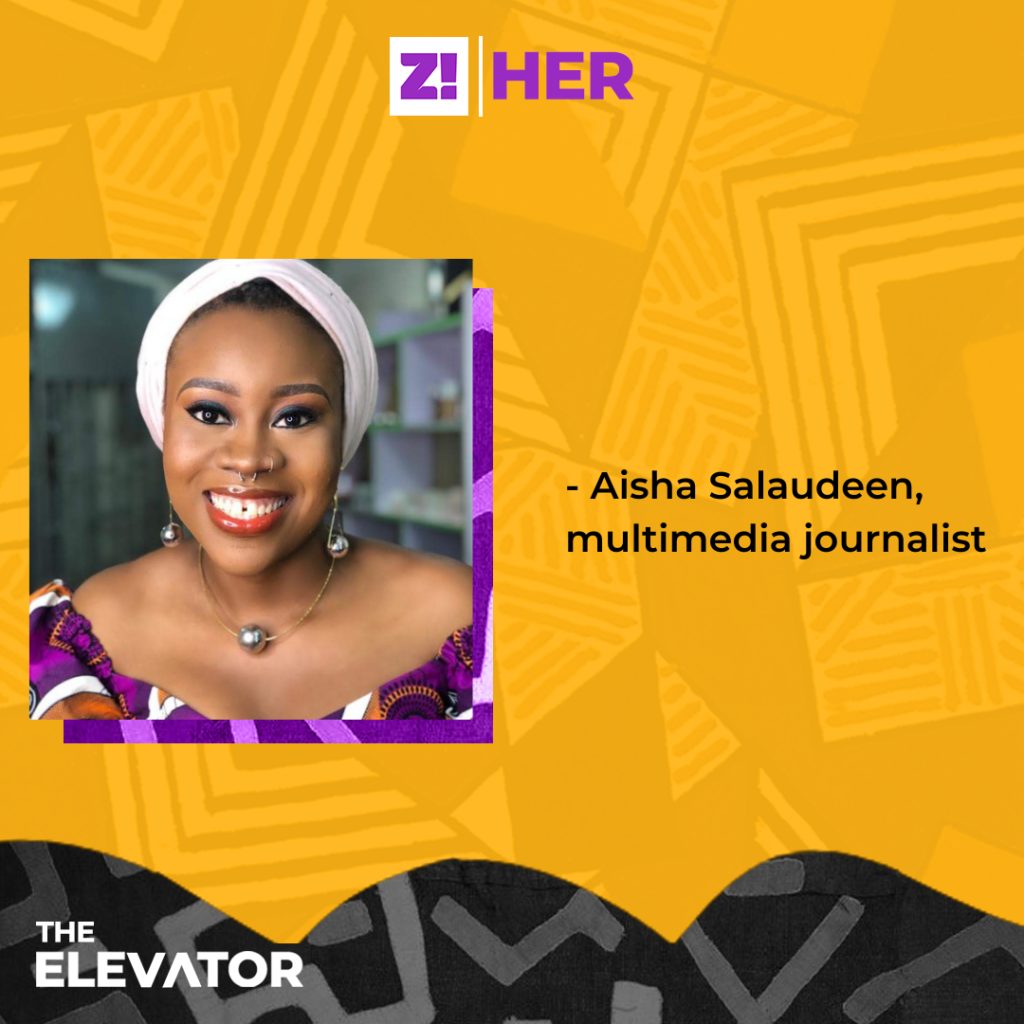
Let’s start from the beginning. What did you want to be when you were a child?
I wanted to be many things: an actor, a newscaster. The wildest thing that I wanted to be was an automobile aeronautics engineer.
Omo. Automobile aeronautics engineer?
Honestly. I really did not know what I wanted. It changed depending on what I thought was cool.
Did this change by the time you were supposed to go to university?
Nope. I studied business economics, but within me, I knew I did not find the courses interesting. I did not hate it; I just did not find the courses exciting.
I actually did not figure out what I wanted to do until I got my master’s in Finance Accounting and Management in 2016. I was 22 at the time and was honestly jaded. I just did it so I could say I got a master’s degree. I was still exploring and wanted something completely different from business economics. Finance Accounting and Management was one of my options. I did really well in my BSc, so I got a scholarship, and although I did not know if I was going to like it, I was not going to turn down a scholarship. Who says no to a scholarship in Bradford, UK? At the end of the day, I figured out I hated it. My BSc was tolerable. My master’s? I completely hated it.
During this time, was there anything you did that you actually enjoyed?
Well, I loved radio. When I was in school, one of my friends who worked in the school’s radio station told me that since I was still trying everything out, I should try radio. I registered, did the training and loved it. People loved listening to the show, and they gave me feedback. This made my undergraduate year interesting. I would say that was the beginning of my journey into media. I also loved writing articles. I used to send my articles to Nigerian newspapers.
Since you loved radio, why didn’t you get a master’s in a media-related course?
My university had a rule that stated if I wanted to get a media degree, I had to get a post graduate diploma in a media-related field. I eventually ended up getting a post graduate diploma in Islamic Banking and Finance, and another one in International Business.
Also, when the scholarship came, it was for Finance Accounting and Management.
Was becoming Nigeria’s Finance Minister in your plan, because these are a lot of degrees.
LMAO. I guess this is what happens when you have privilege and are confused. You try everything in your way. My parents thought I wanted to be an accountant or work in the World Bank. They did not know I did it because I was confused.
Why do you think it took you so long to figure it out?
I loved and hated many things. When I went to college for my foundation program, I thought I was going to become an economist, but within me, I knew I did not find the classes interesting. It was a race to figure out what I liked before it became too late. It took joining the school’s radio team and writing articles for me to find storytelling.
Maybe all of this happened because I am an unserious person. I did not find many things interesting, and I used to sleep off in class. Even when I got my first job, I used to sleep off.
LMAO. What job was that?
After my master’s, I went for NYSC. My first job was at my place of primary assignment — an accounting job. I resigned after three weeks because it was incredibly boring. I would be on my chair typing, and I’d fall asleep. I hated the idea of balancing books.
What was your plan after resigning?
After resigning, I felt I had to prove myself. I had decided I wanted to go into storytelling, be a journalist, but my parents were not too happy about it. They were confused because I had four degrees in finance-and-accounting-related courses, and suddenly, I wanted to be a journalist. The Nigerian parent in them felt I wasted their money. I had to explain how much I hated the job. After this, I had to prove I knew what I was doing.
So what happened after resigning?
I went online and said, “I want to be a full-time journalist, can someone help me with ideas?” Honestly, I didn’t care what anyone thought. I was messaging all the journalists I followed and asking them to help me. I was desperate.
And did they help you?
Yes. People were so nice to me. There was this particular journalist, Mercy Abang, who carried my matter on her head. She was telling me how to pitch stories to international media organiszations and was linking me up with her friends. With all the help, I started freelancing for international media organisations. My very first was Aljazeera.
WOW. Straight for the big guys.
LMAO. Well, not straight. I mentioned I used to write before, so I already had writing samples. It helped that it was an article on #EndSARS in 2017, about the first time the hashtag started popping up. I pitched it as a trending story that was important. I don’t think any editor would have said no to it. When I finished, I went straight to my parents’ house to show them. It was proof that I knew what I was doing. It was at that moment they decided to let me do my journalism.
Eventually, I realised that freelancing was not sustainable for me because it did not come all the time, except you are really familiar with editors. I was struggling. You might think you have a very great story, but you pitch it to about ten people and only one person will reply. The reason for their reply might even be to turn you down.
How did you deal with all the rejections?
The rejections were not my problem, and I say this from a place of privilege. I lived with my parents, so I did not have to worry about food, rent and all the important stuff. My problem with rejections was that I did not know why they were rejecting me. If I did not know why they were rejecting me, I could not improve my pitch or my storytelling. It was frustrating. So, I started adding to my pitch that they should please give me feedback if they are not satisfied with it. They actually started responding.
So what did you do next?
I started looking for a full-time job. Luckily for me, around the time I was looking for a job, Stears Business was hiring. A journalist I had become friends with, Eromo, messaged them and told them about me. I didn’t even know he was doing that until I got a message one day from Stears. I applied and it was such an excruciating application process, and that was what made me like them. They asked the difficult questions that made me think. I’m really grateful because it gave me the training I did not have in editing, writing, identifying good stories and talking to people. Because Stears was new at the time and trying to figure out what they wanted to be,, it meant I was always writing articles. Since I was writing everyday, people kept seeing my articles. It helped people know who I was, and that’s how my former boss at CNN found me.
Aljazeera? Stears? CNN? OMO.
LMAO. She told me she saw my articles and asked if I wanted to work for CNN. When someone asks you if you want to work for CNN, you don’t think twice. I did a test and a couple of interviews, and that was how I started working for CNN.
Writing for CNN was incredibly frustrating but amazing at the same time. I say amazing because I came from a place of writing strictly for Nigeria, but now I have done work in more than twenty African countries. It gave me leverage. I was not limited.
I say frustrating because sometimes it was not as niche as I wanted. For example, if there was something happening in Katsina and I wanted it to be covered as quickly as possible, I may not be able to because CNN has such an international audience. The stories would be too local for them.
The Devil works hard, but you work harder. You also have a very healthy amount of luck.
Yeah, and I met a lot of the right people. My journalist friends kept mentioning my name at places I didn’t even know about. I’m glad I was not ashamed to ask for help. I messaged every single journalist I thought was doing amazing, and I kept disturbing them. I think disturbing them was so frustrating that they kept mentioning my name. I am glad it worked.
So step one is to abolish shame. Taking notes.
Yes. Do not be embarrassed to ask. A lot of times people are scared of rejection and being ignored, and honestly, it will happen, but do not be afraid to ask. I did not know anything about journalism in Nigeria and asking got doors opened for me. I tell journalists now to ask.
Also, people shouldn’t be afraid to blow their own horn. There is this lie about how your work will speak for itself, but it is not true. Your work will not speak for itself unless you let people know about it. If you don’t blow your own horn and share your work everywhere, nobody will know you exist. When I just started, I had a couple of stories in the PUNCH, but I spoke about it like it was the best thing since sliced bread.
The last thing I’ve learnt is that you should always develop your skills. You can ask for help and blow your own horn, but if there is nothing to back it up, then it’s counterproductive — you are making noise about things that do not exist.
You spoke a lot about not having a degree in anything media-related. Do you see yourself changing that?
Yeah, I am actually thinking of getting my PhD in Media and Gender Studies merged together. I do not know what I am going to research on, but I know I’m going to figure it out.
Unlike during my masters and undergraduate, I actually enjoy and care about media and gender studies. I feel like when you care about what you are studying, it’ll be bearable.
Women-related stories are really important to you.
Yes. Women’s related stories mainly because I am a woman, and I think it is also sentimental because it was the story that started my career as a journalist was about the trauma of another woman. I spoke about police brutality a particular woman had endured. Since then, it has been sentimental to me. I think the stories I have enjoyed the most or have been super impactful are women-related: abortion rights, sexual violence, etc. Those are stories I feel like I should be telling more because they are a major part of my life.
If you are not writing about women’s stories, what are you writing about?
I kind of write about everything. Before I became a TV producer, I wrote about business and culture.
TV producer?
I did some digital articles for about eighteen months and got tired. I was getting to a point where it was getting too easy, and I wanted to call myself a multimedia journalist with my chest. I wanted to do more than just writing articles, I wanted TV. I started taking courses in TV production, and I made a very bad mini-documentary that I haven’t deleted from my Instagram because I want it to remind me of where I am coming from when I become a really big TV producer.
I told my former editor to let me know if they see any TV-related openings. So when CNN was hiring for a TV producer, they sent it to me and I applied.
What is your favourite project you have worked on?
I can say the very first video I produced for CNN. It was my favourite because it was my first, and it has sentimental value. It was about a nine-year-old boy who had created over thirty video games. It was one of the best at the time, and it did so well.
If you could talk to your 10-year-old self that wanted to become an automobile aeronautic engineer, what would you tell her?
I’d tell her not to have shame. There are so many things having shame has taken away from me. I’ll tell her to always ask questions and go for what she wants.
What’s next for you?
Well, what I just started is what’s next for me — being a multimedia journalist, moving a bit slowly from writing articles to TV. What’s next is producing and filming TV shows, writing scripts for them. Doing voice-overs, getting in front of the camera. I’m doing all of these things, but I’ve just started. What’s next is being able to say I’m a full-blown multimedia journalist with my chest. Maybe write a book even. The book will definitely be before my PhD because I still haven’t figured out what I want to research. Maybe this book will help me with that.

